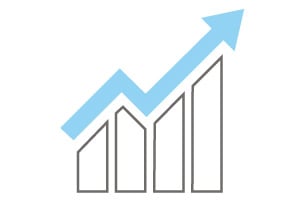My colleague Sam Millette, director, fixed income on Commonwealth’s Investment Management and Research team, helped me put together this month’s Market Risk Update. Thanks for the assist, Sam! Let’s take a closer look.
News
Economic Release Snapshot: Inflation Slows in June
Each week, we break down the latest U.S. economic reports, including what the results mean for the overall health of the economy. Here, you will find how economists’ forecasts compare with actual results, key takeaways to consider, as well as a list of what’s on tap for the week ahead.
What Mattered This Week? Inflation
There was one word that mattered this week: inflation. The consumer and producer data reports were released, and they both said the same thing. Inflation is down, significantly. That news took interest rates down and the stock market up. It was a good week from economic and investment standpoints. To understand why, let’s dig in a bit.
Economic Risk Factor Update: July 2023 [SlideShare]
My colleague Sam Millette, director, fixed income on Commonwealth’s Investment Management and Research team, helped me put together this month’s Economic Risk Factor Update. Thanks for the assist, Sam! Let’s take a closer look.
2023 Midyear Outlook: Asset Allocation Risks and Opportunities
What a year it has been for financial markets. There have been several negative factors in play, including a high-single-digit inflation print, the ongoing war in Ukraine, and several regional bank failures. Nonetheless, the S&P 500 finished the second quarter up 17 percent for the year. Go figure!
Economic Release Snapshot: Hiring Slows in June
Each week, we break down the latest U.S. economic reports, including what the results mean for the overall health of the economy. Here, you will find how economists’ forecasts compare with actual results, key takeaways to consider, as well as a list of what’s on tap for the week ahead.









 Client Relationship Specialist
Client Relationship Specialist




 Ashley has been working in the customer service field since she started her first job at age 16. For the past ten years she worked in an office setting handling accounts payable and receivable as well as some receptionist work. She is very excited to learn more about the investment field.
Ashley has been working in the customer service field since she started her first job at age 16. For the past ten years she worked in an office setting handling accounts payable and receivable as well as some receptionist work. She is very excited to learn more about the investment field. Client Relationship Specialist II
Client Relationship Specialist II Vice President of Operations and Integrator
Vice President of Operations and Integrator Wealth Advisor
Wealth Advisor Senior Client Relationship Specialist
Senior Client Relationship Specialist Senior Wealth Advisor
Senior Wealth Advisor Wealth Advisor | Director of Business Development
Wealth Advisor | Director of Business Development Wealth Advisor
Wealth Advisor Senior Wealth Advisor / Registered Principal
Senior Wealth Advisor / Registered Principal Senior Wealth Advisor / Registered Principal
Senior Wealth Advisor / Registered Principal